10 Tips for Strong and Healthy Nails
Updated: Aug. 20, 2019
Follow these tips on how to make your nails stronger and healthier, on your hands and your toes.
Nails make it easier to pick up small things and scratch an itch. They also provide an external sign of your health, with weak, brittle nails often signaling some nutritional deficiency, and ignoring them all together could lead to painful ingrown nails or annoying fungal infections. Unexpected changes in the fingernails could even be a sign of several types of cancer.
Follow these 14 tips for not only well-groomed, but healthy and strong nails on all 20 fingers and toes.
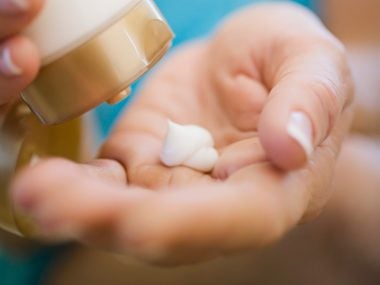
Keep your nails hydrated.
Rub a small amount of petroleum jelly or lotion into your cuticle and the skin surrounding your nails every evening before you go to bed or whenever your nails feel dry to prevent breakage. Not a fan of petroleum jelly? Substitute castor oil, which contains cuticle booster vitamin E., or head to your kitchen cupboard and grab the olive oil. MayoClinic.com even suggests wearing cotton gloves to bed to seal in moisture if you have weak nails that need toughening.
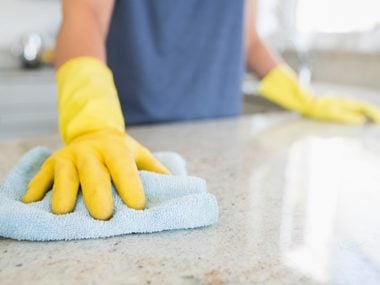
Wear rubber gloves whenever you do housework or wash dishes to protect your digits from harsh chemicals in many cleaners.
Simple household chores, like gardening or scrubbing pans are murderous on your nails. To prevent nail fungus, turn the gloves inside out to dry when you’re finished. If your job requires frequent hand washing, Dermatologist Dana Stern, MD, told WebMD.com that it’s a good idea to be extra vigilant about moisturizing.
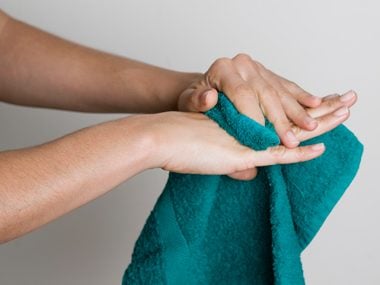
If you have a bad habit of drying your hands on your pants after using the bathroom, you might want to reconsider because damp hands increases your risk of fungal infection. Don’t forget your toes! Dry toes thoroughly after swimming or showering and be sure to apply lotion. And, beware of hand sanitizers, which can seriously dry out your skin and lead to brittle nails.
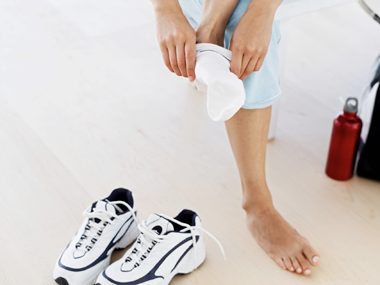
The right socks are key to avoiding unsightly (and sometimes smelly) fungal infections.
Synthetic socks are best for absorbing dampness, and be sure to change pairs often if you’re prone to sweating. Air out your shoes after use and doctors at MayoClinic.com even suggest slipping off your shoes throughout the day to let your feet breathe. For extra protection, spray your shoes or sprinkle your feet with anti-fungal spray or powder.
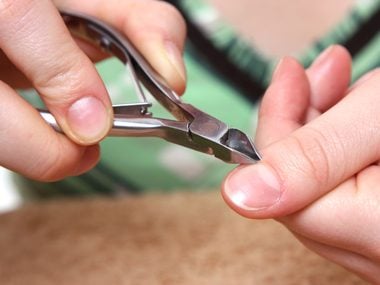
Never cut your cuticles!
Instead, Stern suggests using a wash cloth to gently apply pressure after a warm shower. Messing with your cuticles can be dangerous and lead to infection, since the ridge of skin is a natural barrier to bacteria and fungus.
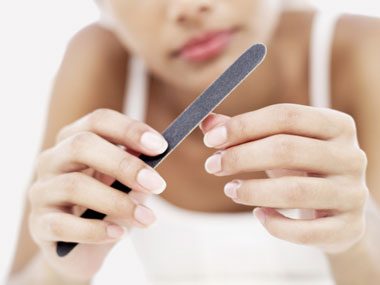
Short nails are your best bet for maintaining strong nails.
Trim them straight across to avoid ingrown nails. Avoid old fashioned emery boards, which are too rough and can cause small cracks that lead to breakage. Gently file in one direction with a smooth file (no back and forth sawing!) to reduce breakage.
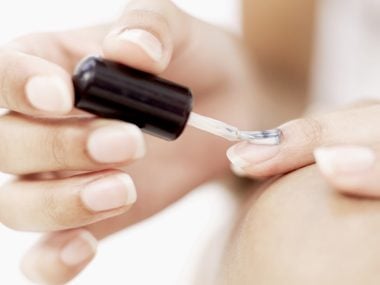
Polish your own nails to improve their strength and give your wallet a break.
Even just a clear coat can protect your nails from harm, says Mariana Diaconescu, manicurist at Pierre Michel Salon in New York City. If you prefer color, she suggests using a base coat, two thin coats of color, and a top coat. Pampering yourself with a trip to the salon is okay every so often, but a study by Mt.Sinai found that people who regularly got professional manicures were more likely to suffer from dry, brittle nails, possibly because of chemicals in the nail care products.
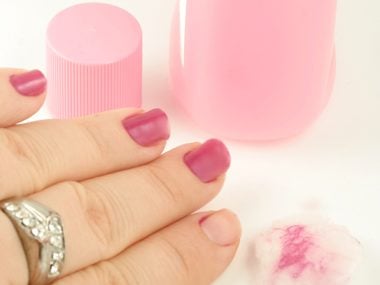
Avoid polish removers with acetone or formaldehyde.
They’re terribly drying to nails, says Andrea Lynn Cambio, M.D., a New York City dermatologist. They can also strip nails, making them brittle and susceptible to tearing and breaking. Use acetate-based removers instead.
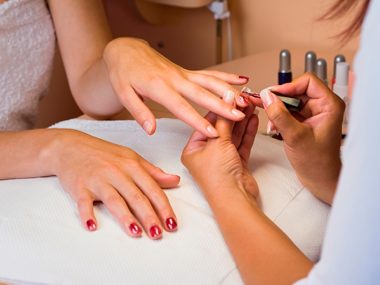
Fake nails are a bad idea, especially because incorrect removal can destroy your nails.
Stern told WebMD.com that if you must artificially enhance your nails, tips are a less damaging option because a smaller surface is covered.

If you’re a nervous nail nibbler, stop!
Not only are your nails a haven for germs that can get you sick, it’s damaging to the nails and nail bed. Even a small cut can turn into an infection, so resist the urge to bite a hangnail and clip it instead.
Read more: These foods that will give you healthy, pretty nails.